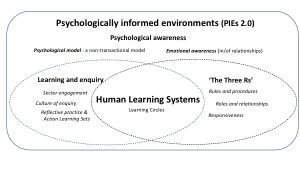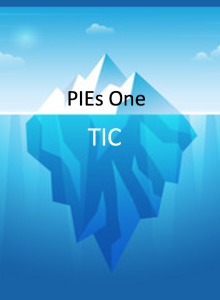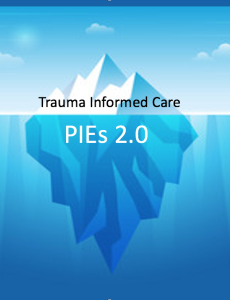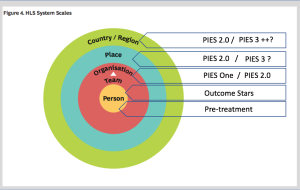Human Learning Systems
The Human Learning Systems (HLS) approach was developed by Toby Lowe and his colleagues at Collaborate, then at the Centre for Public Impact, and currently with colleagues at Manchester Metropolitan University's Public Services Research Unit (PERU*)
HLS is an example of a way of working with complexity that has many points of interface with the broader PIEs 2.0 model.
Both also aim to work at multiple levels, from provider services to local network building, to commissioning and national policy tiers
* The PERU group's annual conference is becoming the high point in the calendar for complexity theory in public service.
Accommodated within the PIEs 2.0 framework, HLS can be seen as an improved psychological model (HERE) for commissioning (HERE), leading to sector engagement (HERE) in a culture of enquiry (HERE); and then looking, in as much detail as may be needed (HERE), at systems and pathways (HERE), networks (HERE), new training and support needs (HERE) etc etc.
Meanwhile, PIEs One can be seen as outlining the kind of relationship-based practice in some services that might well result from the discussions, whether at local or national level, from a HLS collaboration.

Human Learning Systems' 'Learning Circles' as 'nested' within in the PIEs 2.0 framewo
The blend of flexibility, breadth and precision in the PIEs 2.0 framework means that it is often adopted as a practical tool to operationalise other approaches, such as TIC and HF.
Whether the Pizazz service and systems self appraisal process for PIEs (HERE) may be useful in HLS' work remains to be seen, but the case for using the software version, the PIE Abacus, with Human Learning Systems' Learning Circles is made in a trio of papers currently being prepared for publication..



